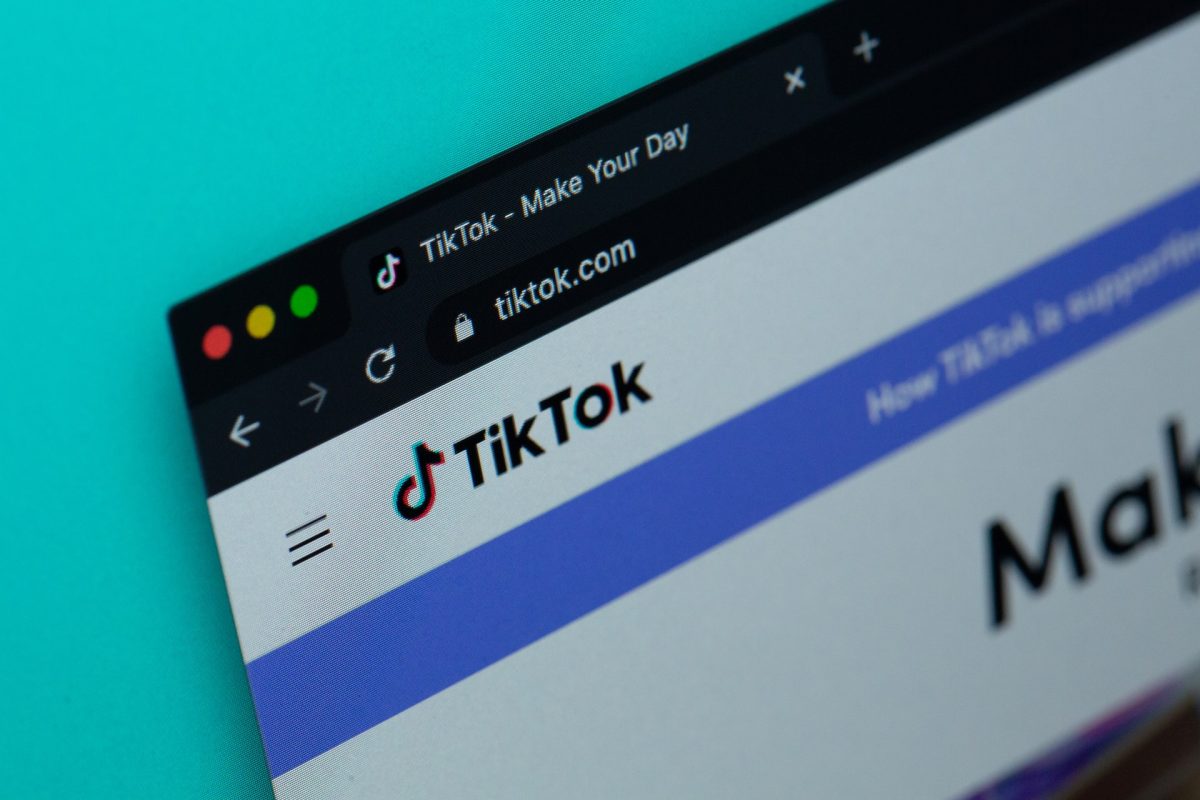What do you see while walking into an Anchor Block or the SHS library? Students are on their phones. From scrolling for hours instead of doing homework–or making TikTok videos in class–TikTok has taken over SHS. In light of this, how has TikTok impacted SHS students’ productivity and mental health?
TikTok fosters over 150 million active users daily in the US–that is almost 45% of the US population (TikTok). In addition, 97% of teenagers in the U.S. use the internet daily, with 67% using TikTok. This number has grown exponentially over the past decade, with only 46% of teenagers using the internet daily in 2014-2015 (Pew Research). With this immense change in such a short amount of time, TikTok has negatively impacted teenagers’ overall well-being.
Due to TikTok’s addictive design–personally curated algorithm, dopamine-powered feedback cycle, and even operative conditioning methods–teens are using the app for several hours every day. Therefore, they are exposed to more harmful content more frequently–videos related to dieting culture, self-harm, and violence–inflicting a higher rate of depression, body-image issues, and self-harm in teens.
Furthermore, there has been an overwhelming number of TikTok users–adults and students alike–stating that their attention span has been shortened from using TikTok. Due to the nature of TikTok’s fast-paced 30-second videos, users are consuming information faster than ever. This has caused users’ attention spans to decrease significantly–from not being able to sit through a 90-minute movie to stopping a 15-minute YouTube video so they can use TikTok. This has undoubtedly led to a decrease in academic performance.
In a survey with SHS students, 46.4% said they felt unmotivated and distracted from schoolwork due to TikTok, and 28.6% were somewhat unmotivated and distracted. SHS senior Stella Thrift noted, “When I had a homework assignment and I didn’t know the answer to a question, I would just go on TikTok. It was an impulse.” In addition, SHS senior Lindsay Thurling stated, “It’s so much content just at our disposal.”
Thurling makes a compelling point. Why would a student spend hours on homework when the entirety of the world is at their fingertips?
At SHS, 39.3% of the students stated TikTok has negatively affected their mental health: One student commented, “I’ve felt more unmotivated and anxious, and it lowers my self-esteem.” Another student added, “It takes up a lot of time from the day and leaves me with an unfulfilled feeling.”
According to another student, TikTok affects “motivation, body image, work ethic, attention span, and self-confidence.” However, 53.6% of the surveyed students feel TikTok has not impacted their mental health. One student stated, “I actually learn things on TikTok that have improved my health.”
Thurling, a content creator on TikTok, uses the app for good. With a following that exceeds 13,000, Thurling started making content in 20202 that attracted followers: “I love the community I’ve found on TikTok and the people I’ve met,” she said. TikTok has spread a myriad of negative content and perspectives, such as on body image; however, Thurling said she finds “that’s why creators have started a positive trend of body positivity.”
Thurling suggested TikTok can create a more positive future, promoting positive and uplifting trends. Moreover, she noted that TikTok is “a way for people to express themselves and have a creative outlet that they might not feel comfortable sharing in school.” With a positive outlook on TikTok–and social media as a whole–Thurling expects “social media platforms to continue to grow on this upward trend of positivity and inclusivity, making people feel united.”
Thrift has taken action against being subjected to TikTok: She deleted the app as a whole. After experiencing a decreased attention span and increased stress, she noted, “I could be doing better stuff with my time–be more productive.” Thrift can now “watch more movies, read books, do chores, and write more.” In school and at home, Thrift can focus more on academics: “I just immediately do work now instead of procrastinating on it,” she said.
What can other students do to change their TikTok habits? According to Thrift, deleting the app or finding the good in the platform and spreading positivity can make a difference. Nonetheless, everyone should limit their social media use to decrease the negative effects of constant exposure–specifically for TikTok.
In 2023, TikTok released a new feature called “Daily Screen Time,” where one can go into TikTok’s settings and set a time limit for the day. If you want to decrease your overall TikTok usage, utilize this feature. Even Apple rolled out a screen time feature years before TikTok, allowing users to go into settings and set a limit for certain apps or app categories.
Ultimately, students are responsible for their own experience with TikTok. Consider your habits in using social media and set guidelines for yourself, ensuring more academic productivity, improved mental health, and a healthy relationship with social media, specifically TikTok.
